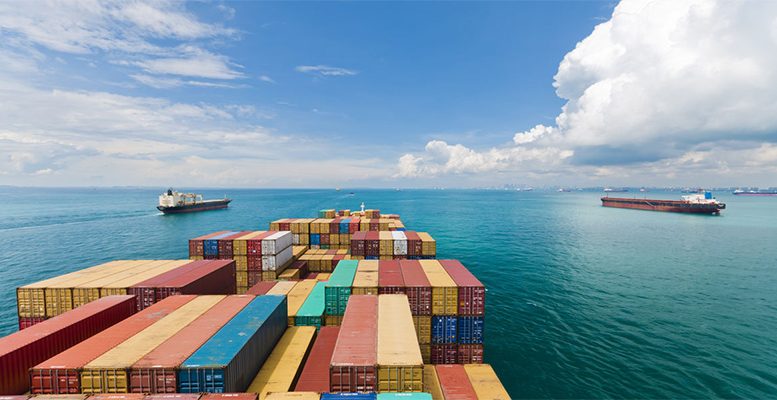As a looming Brexit relentlessly edges closer, could the prospect of a new global cooperation slowly edge to the brink of reality? Speaking recently about Brexit and the implications on global trade, Bank of England Governor, Mark Carney, described it as an “acid test of whether a way can be found to broaden the benefits of openness while enhancing democratic accountability”.
The latest official BoE forecasts about the impact of a no-deal Brexit on the UK economy predict 2019 as the worst year since the global financial crisis sending annual growth plummeting to 1.2% from an earlier projection of 1.7% and spurring a 25% likelihood of recession. Business investment in the UK has not grown since the result of the 2016 referendum and has fallen by 3.7% over the last year, despite a growing economy that continues to outpace the EU average growth rate.
Yet beyond the gloomy macroeconomic forecasts, short term volatility generally dominates economic data and produces conjunctural tensions, and these are most likely to shape the foreseeable future.
Clearly, both the UK and EU will be the two front bearers of these new, developing circumstances. But in a system which is fundamentally based on an international trade irrespective of geographic regions, these consequences will be undeniably transferred and absorbed by all major global trading systems over the medium to longer term, and particularly more imminently within the scope of financial services. The world economy will need to assess the new shape that global integration will have to fundamentally reorder into, driven in large part by the consequences of the short term uncertainties, beyond March 29.
As things stand today, trade wars on a multilevel scenario away from UK-EU issues beckon a sharp rise in trade deficits, many of these imbalances are already firmly accountable on current national balance sheets as observed by available GDP data, unfortunately fuelling further disputes and ultimately exacerbating tensions to unreasonable levels.
Unfolding economic and political thought distinctly forsees that global trade will tend to centre around intangible goods, and this should ultimately force the major participants in the services playing field to seek a new cooperation to mutual benefit if not least to attenuate deficits.
A reasonable assumption would be that this could only willingly be achieved by precise measures on the regulatory regimes surrounding financial services transactions between states, whose cohesive policies would ultimately correct those anomalies generated by the international trade disputes among exporting manufacturing sectors. Yet, as globalisation stands today, past efforts have created many inequalities which has led to escalating mistrust within the system. This key point emphasises the need to reach mutual benefit, a concept that is unfortunately left off the roundtable in most negotiations, not just in search of the prospect of unilateral gain, but also as a biproduct of surging populism on a global scale which weighs heavily on sovereignty.
Within this scope, UK and US financial conduct and regulatory authorities (FCA and CFTC) jointly announced after concluding together with the BoE just a few days ago, that an agreement had been reached to ensure the continuity of derivatives trading and clearing between both jurisdictions whatever the outcome at the end of March. Regulatory uncertainty has therefore been removed, as the deal guaranteed that UK and US firms will be able to continue their business as it stands today in current bilateral agreements between the US and the EU.
In the shadow of the failed Transatlantic Trade and Investment Partnership TTIP, this demonstrates the principle of mutual cooperation which the BoE governor was clearly aiming to promote. The recognition that over 90% of the global derivatives market is centred in London has undeniably driven the need for this transatlantic cooperation.
Carney cited this triparty agreement whilst urging politicians to find a common solution, warning against the consequences of protectionism and de-globalisation.
He may have wished to send the subliminal message that EU politicians within the sphere of financial services could fare productively by considering the benefits of cooperation, instead of offering resistance to forge a similar agreement while actively supporting bids from either Frankfurt or Paris to capture and implement the market on home territories.
Rebuking US President Trump’s current stance on trade disputes with China which has stoked diplomatic squabbles, as alleged corporate misdemeanours are investigated in a tit-for-tat spat most notably in the case of the Huawei espionage scandal, he insisted that any such offensive would cause “significant damage to global growth prospects”, further claiming that “it isn’t easy to win a trade war”. The BoE governor warned that average US tariffs would be bound to reach levels not seen in half a century if mutual cooperation was not on the agenda.
Fundamental pressures level the field in a free market economy but in a global environment where political gains add to the incumbent historical difficulties associated with the bilateral trade negotiations of tangible goods, initiatives within the services industry created out of the necessity to oversee an agile multi-trillion dollar market could shape a new doctrine on global cooperation.





